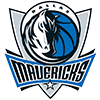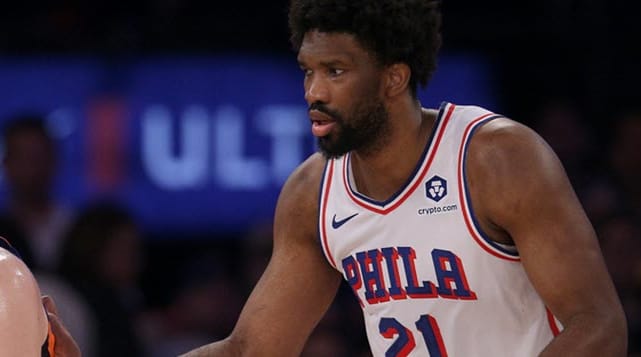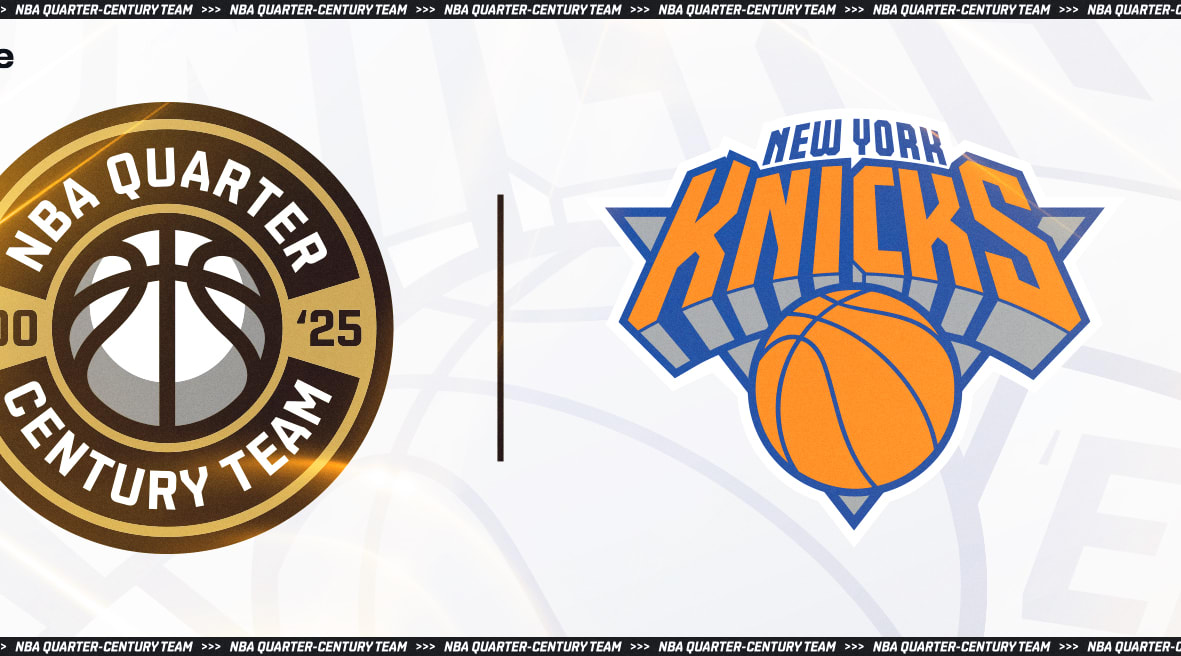The NBA playoffs can make evaluating players for fantasy purposes confusing. Coaches generally shorten their rotations during the playoffs in an effort to play their best players more minutes. Doing so can make it seem like these players have improved, and the players losing minutes have gotten worse, even when that is not the case. Because the playoffs constitute a relatively small number of games compared to the regular season, a few really great player performances can disproportionately affect our perception of their future fantasy value.
As an illustration, we can look at Harrison Barnes' outstanding performance during the 2012-13 playoffs. David Lee was seriously limited during the playoffs because of a hip injury he suffered during the Warriors' first playoff game against the Nuggets. The Warriors responded by playing Barnes more minutes in a small-ball lineup. The Warriors had a successful run into the second round of the playoffs (eventually losing to the Spurs), and Barnes significantly improved his scoring (9.2 ppg to 16.1 ppg), three-pointers made (0.6 3PM to 1.6 3PM), and rebounding (4.1 rpg to 6.4 rpg). However, during the following regular season (2013-14) Barnes' minutes and statistical output reverted to nearly an identical level as his 2012-13 regular season:

Clearly, unexpected playoff performances can be deceiving for fantasy owners, but if we cut through the playoff noise, we can use the playoffs to identify players who will deliver an increased level of fantasy value in the following season. For example, during Chicago's 2012-13 playoff run, Jimmy Butler, like Barnes, was given additional minutes due to several injuries (Luol Deng's spinal meningitis, among others). Butler outperformed his regular season stats during the playoffs (points: 8.6 to 13.3, three-pointers: 0.5 to 1.3, assists: 1.4 to 2.7), and then continued to produce at the same high level during the 2013-14 regular season:

During the playoffs this season, Bradley Beal and Draymond Green both outperformed their regular season stats. The question then became: Is their increase in production simply a playoff anomaly, or will we be able to rely on them to continue producing significant fantasy value next season?
Beal appeared on many preseason fantasy sleeper lists and was the 55th player taken on average during ESPN live fantasy drafts. He suffered a stress injury to his right fibula during the season and missed nine games in 2013-14, and he finished just 102nd on the ESPN Player Rater, well below his average draft position. The ESPN Player Rater is roughly equivalent to the wins above replacement (WAR) statistic made popular in baseball, except it's used to evaluate fantasy performance in an eight-category rotisserie league. The Player Rater shows that Beal's struggles shooting the ball (41.9 FG%) this season led to his low ranking. In addition, it tells us his failure to be significantly better than replacement level in any category besides three-pointers also held his fantasy rating down.
However, Beal's outstanding real basketball performance was a major reason why the Wizards had such a successful playoff run, as they upset the Bulls in the first round, and took the top seeded Pacers to six games in the second round. Despite playing against the Bulls and Pacers, teams with a reputation for strong defensive play, Beal outperformed his regular season stats in both the first and second round. You can see in the table below that during both rounds Beal increased his per game averages in points, rebounds, and assists. In fact, if we go back to the ESPN Player Rater and replace Beal's regular season stats with his playoff stats, he would have finished somewhere between 25th and 34th, a significant jump from his actual 102nd finish:

Part of the reason Beal's level of production in the playoffs increased was because his playing time also increased. Beal has suffered a stress fracture in each of his seasons in the NBA, which makes any significant increase in playing time likely unsustainable for an entire regular season. Still, if we use his playoff production as a starting point of what to expect from him going forward, and then adjust them to a 36 minute per game average, we can expect to see an improve to somewhere in the range of 48th to 52nd on the ESPN Player Rater for Beal next season. This improvement is due to his increase in assists (3.3 apg to 3.9 apg) and rebounds (3.7 rpg to 4.2 rpg), as well as an improvement in scoring efficiency (similar scoring average, two less field goal attempts per game):

Recommendation: Beal will be just 21 years old next season, so an increase in fantasy value seems like a natural progression for him. Additionally, there are no concerns about his role on the team. In fact, the only concern for fantasy owners is that the Wizards will play him too many minutes, which could lead to similar injury issues that he has dealt with in the past. I believe the above expectation for Beal is a conservative one since it represents what he did in the playoffs against two difficult opponents. I would recommend targeting him as early as the fourth round of fantasy drafts next season.
Green was a pleasant surprise for fantasy owners this season, particularly in deeper fantasy leagues. He was the 198th player taken on average during ESPN live fantasy drafts, and he finished 121st on the ESPN Player Rater. Like Beal, Green also saved his highest level of production for the postseason, where he received additional minutes due primarily to Andrew Bogut missing the playoffs with a broken rib. While Green was a solid regular season fantasy contributor in rebounds (5.0), blocks (0.9), and steals (1.2) despite limited minutes, in an expanded playoff role, he continued to produce at similar per minute levels in those categories, averaging 11.9 points (up from 6.2 ppg), 8.3 rebounds, 1.7 steals, and 1.7 blocks.

If we replace Green's regular season stats with his playoff averages, he would have ranked in the top 30 on the ESPN Player Rater. Top 30 is not a misprint. Green would have ranked just ahead of fantasy studs like LaMarcus Aldridge, Al Jefferson, and Andre Drummond due to his ability to put up production that was above replacement level in almost every fantasy category on the player rater.
The big question mark with Green is obviously playing time. To illustrate, take a look at his playoff production adjusted to his regular season minutes:

As I mentioned earlier Green did increase his per minute scoring during the playoffs, but the rest of his postseason production remained on par with his regular season production on a per minute basis. On one hand, this is a great sign. It indicates that his increase in production in the playoffs is likely sustainable. On the other hand, it shows how dependent his fantasy value will be on playing time next season.
Recommendation: During the playoffs, Green showed the potential to be a very valuable fantasy player if he is given a role where he can play 30 minutes a game or more. However, there is no indication that he will see that level of playing time on a Warriors team that features David Lee, Andre Iguodala, and Harrison Barnes. I would suggest paying close attention to his situation this offseason, as there is a lot of uncertainty in Golden State right now. They recently fired coach Mark Jackson and hired Steve Kerr as his replacement. It's entirely possible that Green will have a different role on the team, for better or worse, under Kerr.
The Warriors have been linked to several different trade scenarios already this offseason. Green could be traded to a team that will provide him an increase in playing time. Lee, Barnes, or even Iguodala could also be dealt, which would open up additional minutes for Green with the Warriors. If there is any indication that Green will have the chance to play 30 minutes per game next season, I would strongly recommend targeting him in the middle rounds of fantasy drafts. Unfortunately, until then, he is just another late-round pick who will have valuable stretches whenever he sees extended playing time.
Is there a player who outperformed their regular season stats during the playoffs that you would like to discuss? Do you want to know where that player's playoff stats would have ranked on the ESPN Player Rater? Please leave a comment below or send me a tweet.
Marc Roberts is a contributor to RotoWire.com. You can follow him on twitter @MarcFRoberts.





























